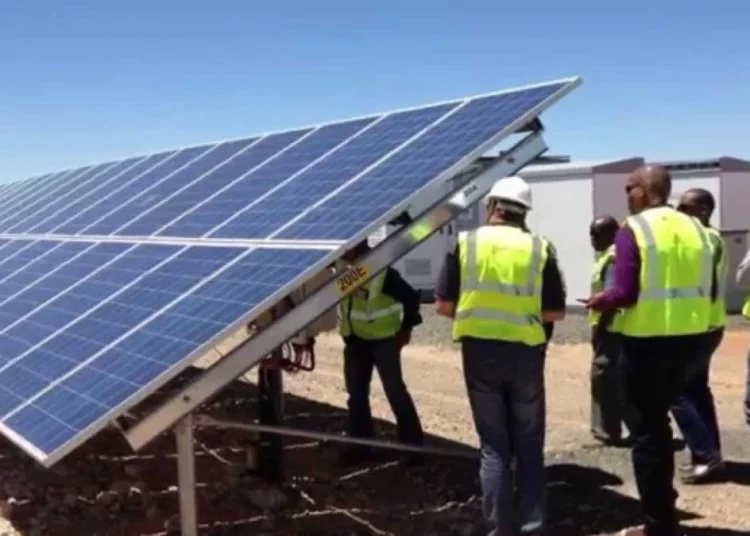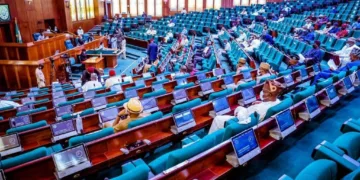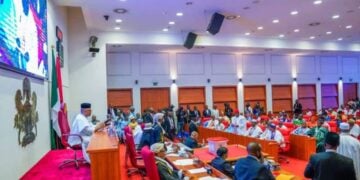The Centre for the Promotion of Private Enterprise (CPPE) advised against the federal government’s plan to ban the importation of solar panels as a measure to promote domestic production of the panels.
The Centre said this in its response to the statement credited to the minister of Science and Technology, Uche Nnaji.
The director/CEO of CPPE, Dr. Muda Yusuf noted that “currently, Nigeria has one of the worst energy accesses with a per capita electricity consumption of about 160kWh, far below the sub-Saharan average of 350Kwh. The adoption of solar energy solutions is one of the most impactful government initiatives to tackle this problem and it has gained remarkable traction. A ban on the importation of solar panels in the face of glaringly inadequate domestic production capacity would worsen the country’s energy crisis.”
According to him, it is a complete negation of the government policy to deepen and promote the adoption of renewable energy solutions by households, small businesses, rural communities and government institutions and other corporate organizations. This adoption of solar solutions has gained an impressive momentum in the last two years, especially in the light of the soaring energy cost in the economy.
On the way forward, Yusuf said, “we shared the Minister’s vision of domestic production of solar panels, which is good for self-reliance and conservation of foreign exchange.
But the transition process should be very painstaking, diligent and gradual. A recourse to a hasty decision of banning importation of solar panels would be very disruptive and counterproductive. It is important to ensure adequate local capacity to fill the supply-demand gaps.”
He noted that the minister’s announcement of a planned importation ban is already generating concerns and anxiety among the renewable energy investing community, the business community, households as well as multilateral organizations.
Yusuf pointed out that “it has significantly elevated the policy and political risk of investing in renewable energy solutions in Nigeria. This should be avoided because of the adverse impact on investors’ confidence. Urgent clarification of the government’s position is needed to restore that confidence.”
He also said that “there should be a robust stakeholder consultation for an inclusive policy process. This would allow for a comprehensive analysis of the wider economic and social implications of such a fundamental policy change.”
He emphasised that Nigeria is not ripe for a ban on importation of solar panels given the acute energy deficit in the economy and the glaring domestic capacity limitations for the production of solar panels.
CPPE recommended that the government should rather support investors in the solar panel production with robust fiscal and monetary incentives; tax incentives, tariff concession on intermediate products and concessionary long-term financing at a single-digit interest rate.
CPPE urged the government to cut the import duty on batteries, inverters and wind turbines to five per cent, saying that “this would significantly improve energy access, energy security and productivity in the economy. It would also reduce reliance on the national grid for power supply. The current cost of batteries and inverters are very prohibitive.”
We’ve got the edge. Get real-time reports, breaking scoops, and exclusive angles delivered straight to your phone. Don’t settle for stale news. Join LEADERSHIP NEWS on WhatsApp for 24/7 updates →
Join Our WhatsApp Channel










